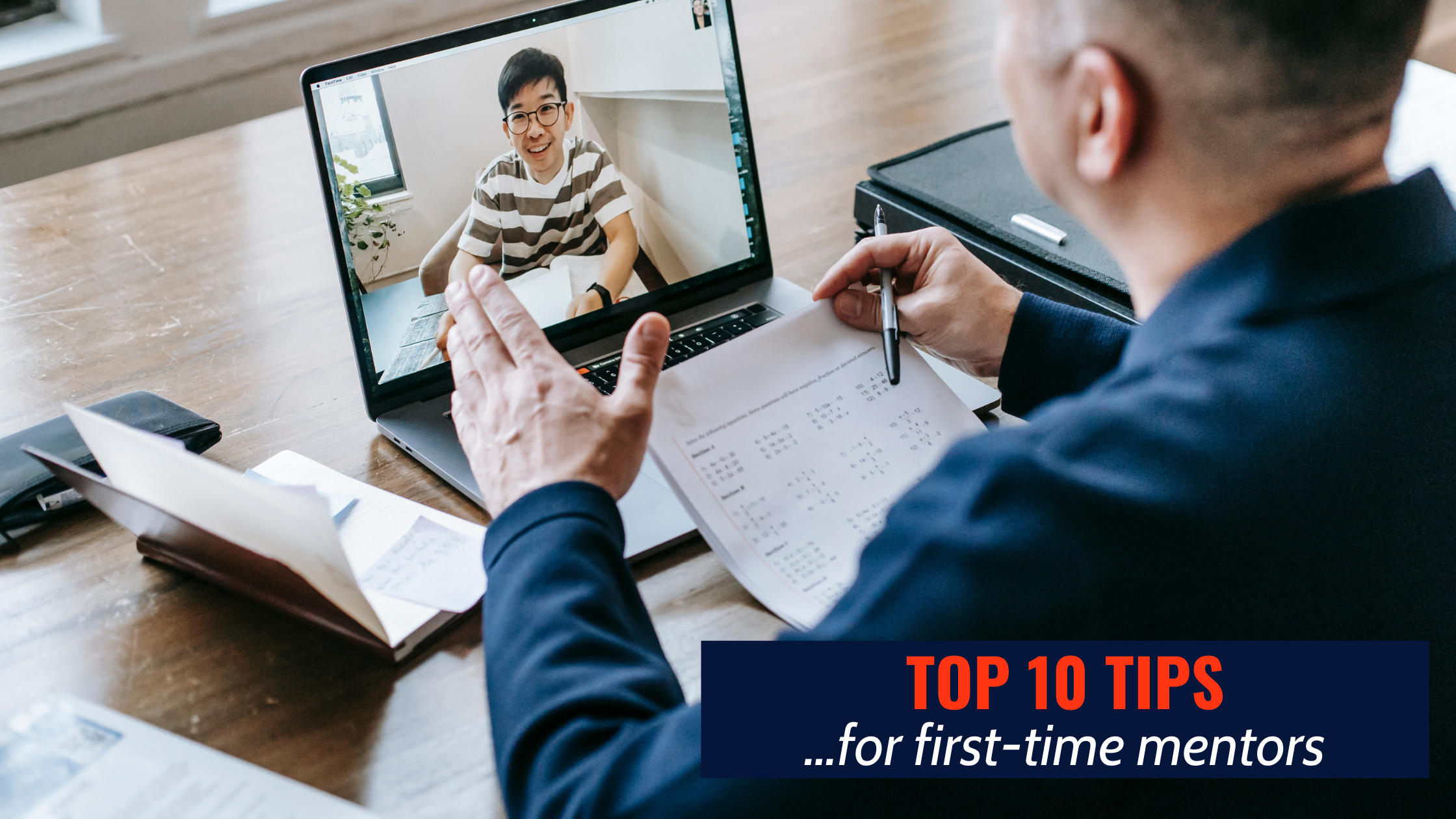Posted on 7th Jun 2024 in General
Author: Chelsey Baker.

Expert Tips for First Time Mentors
Becoming a mentor for the first time is a rewarding experience that can shape both your life and the life of your mentee. However, it can also feel somewhat daunting to step into this new role.
To help you get started, here are ten expert tips designed to be easy to implement but impactful in ways you might not have considered.
Each tip is grounded in the values of inclusivity, accessibility, and effectiveness, ensuring that your mentoring relationship is as beneficial as possible for both you and your mentee.
1. Active Listening
Active listening is the cornerstone of effective mentoring. This means fully concentrating, understanding, responding, and remembering what your mentee says. Practice making eye contact, nodding in agreement, and providing feedback to show you understand. This builds trust and ensures your mentee feels heard and valued.
Show active listening by reflecting back what you have heard and allow the mentee the opportunity to correct your understanding.
2. Setting Boundaries
Clear boundaries are essential to maintain a professional and effective mentoring relationship. Discuss and agree on the limits regarding confidentiality, time commitments, and the scope of your interactions early on. This prevents misunderstandings and keeps the relationship focused and respectful.
Show boundaries by ensuring you are clear on the objectives of your mentoring session.

3. Emphasise Accountability
Holding each other accountable is crucial for progress. Set clear goals and regularly review them together. This encourages responsibility and helps both parties stay committed to the mentoring process. Remember, accountability is a two-way street; it's about supporting each other in meeting commitments.
Your role is to empower your mentee on their own journey and help them to discover what they need, why they need it and help facilitate that process.
4. Show Appreciation
Recognise and value the efforts and contributions of your mentee. Expressing appreciation can foster a positive atmosphere and encourage continued effort and engagement. Simple gestures like saying "thank you" or acknowledging a job well done can go a long way.
A great structure for appreciation is to tell the mentee what you have enjoyed through your interaction with them, their actions and their progress thus far. This creates trust. Once trust is established it’s much easier to reflect, challenge and review progress allowing the mentee to find solutions to move forward.
5. Be Authentic
Authenticity builds trust and fosters a deeper connection. Be genuine about your experiences, strengths, and weaknesses. Sharing your own challenges and how you overcame them can make you more relatable and provide valuable lessons for your mentee.
6. Availability
Being accessible and willing to invest time in the relationship is key. Ensure you can commit to regular meetings and follow-ups, this shows your mentee that you are dedicated and reliable, which helps to build a strong and supportive relationship.
When you commit to being a mentor, communicate clearly when you are and are not available, and your preferred method of communication.

7. Encourage Empathy
Empathy involves an understanding of your mentee’s situation in a non-judgment way. This helps you connect on a deeper level and provide support that's tailored to their specific needs. Showing compassion and holding space can significantly impact your mentee's confidence and growth.
“Empathy is a way to connect to the emotion another person is experiencing; it doesn't require that we have experienced the same situation they are going through” - Brene Brown.
8. Holistic Development
Consider the overall growth of your mentee, including personal, professional and social aspects. Holistic development ensures that mentoring addresses all areas of your mentee’s life, promoting balanced growth. Discuss various aspects of their life and how you can support them.
Having a holistic approach to mentoring builds up the whole person. In areas you may not have expertise on seek other professionals or resources which might support your mentee or encourage your mentee to do some research about how they may improve different aspects of their life.
9. Promote a Growth Mindset
Encourage your mentee to develop a growth mindset - the belief that abilities and intelligence can be developed with effort and learning. This perspective will help them embrace challenges, persist through obstacles, remain committed to their goals and view failures as opportunities for learning and growth.
10. Utilise Constructive Feedback
Providing feedback that is specific, actionable, and focused on behaviour rather than personal characteristics can greatly help your mentee improve. Constructive feedback helps them understand their strengths and areas for improvement in a positive and supportive manner. Always frame feedback with the intention of building your mentee up.
Conclusion
Stepping into the role of a mentor for the first time is a significant and rewarding endeavour. By implementing these expert tips, you can ensure a positive and productive mentoring relationship. Remember, mentoring is a journey of mutual growth and learning. Embrace this journey with an open heart and a commitment to making a difference. Make sure you also have a mentor supporting you on your mentoring journey.
Take time to prepare for your mentoring session, including preparing what questions you might have if you were a mentee, and what questions you may need answering, in order to facilitate your session.
A great question to open your mentoring session with is “What does success look like for you and what are you looking for by the end of our session?”
What other questions would you consider when starting your mentor/mentee relationship?
Visit our FAQ section for answers to all your mentoring questions https://nationalmentoringday.org/facts-and-statistics/FAQs
Get involved to shine a spotlight on your mentoring and be featured in National Mentoring News: Subscribe today at https://nationalmentoringday.org/subscribe/newsletter
National Mentoring Day supports mentors, mentees, and mentoring initiatives worldwide and shares YOUR mentoring news, impact, and stories all year round.
Join our National Mentoring Movement: https://nationalmentoringday.org
© National Mentoring Day





